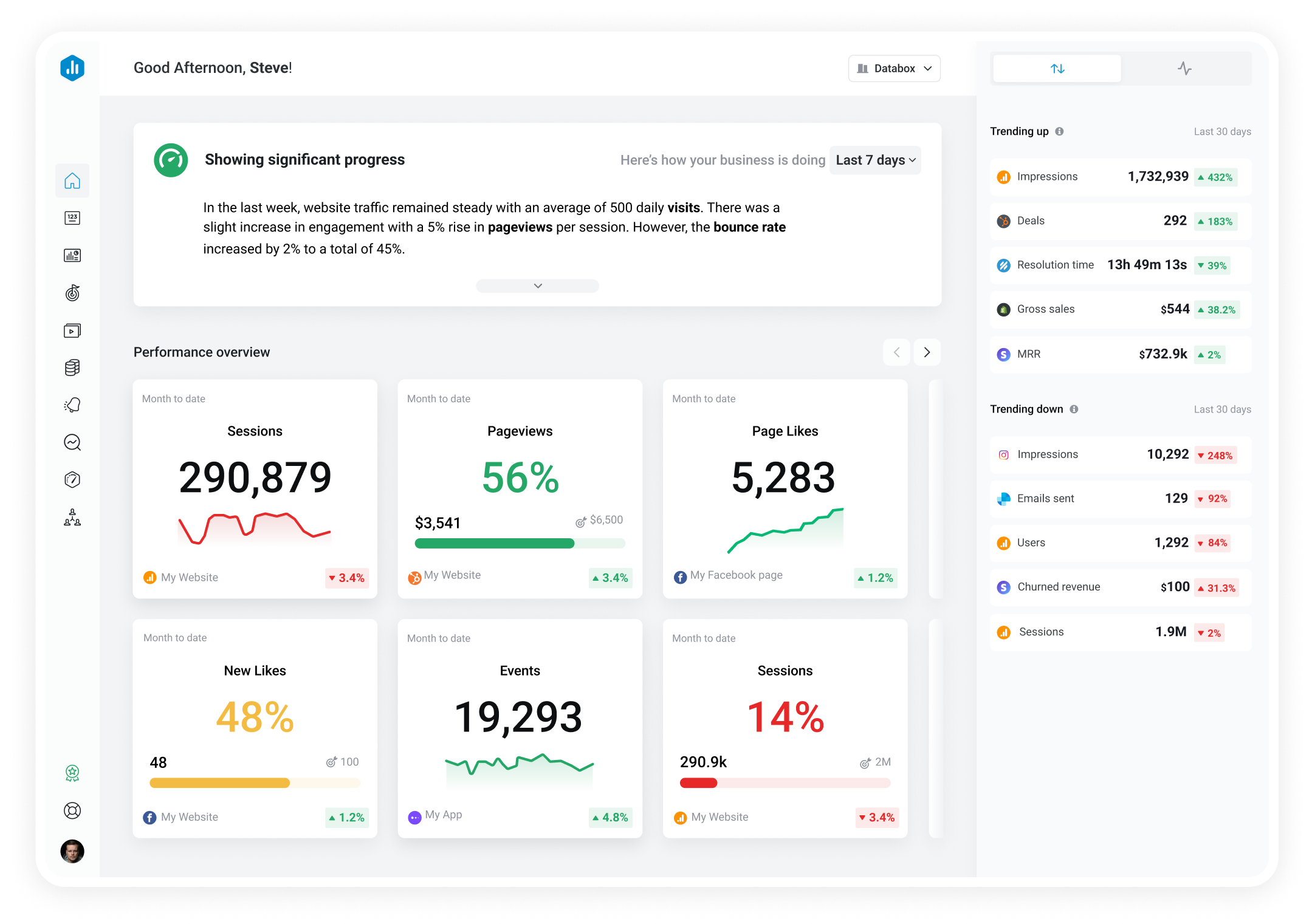Track all of your key business metrics from one screen
GET STARTED
 AccuRanker
Keywords
AccuRanker
Keywords The Keywords metric shows the total number of keywords for which a website or domain is ranking in the search engine results pages (SERPs).
With Databox you can track all your metrics from various data sources in one place.
The Keywords metric shows the total number of keywords that a website or domain is tracking or ranking for in the search engine results pages (SERPs). Keywords are measured through various marketing and SEO analytics tools, providing valuable insights into the performance and effectiveness of a website’s SEO strategy.
Common keyword metrics include keyword rankings, keyword search volume, keyword click-through rate, keyword difficulty, and more.
The number of keywords a page should rank for largely depends on the nature and length of the page content. Businesses also often prioritize quality and relevance of the keywords over their quantity.
Here are some factors that affect the number of keywords a page will potentially rank for:
It’s essential to improve the usage of keywords in your content to boost its search visibility and expand its reach to a broader audience. To achieve that, you can implement the following tactics:
More resources to help you improve:

Used to show a simple Metric or to draw attention to one key number.

Used to illustrate numerical proportions through the size of the slices.

Used to show comparisons between values.
Databox is a business analytics software that allows you to track and visualize your most important metrics from any data source in one centralized platform.
To track Keywords using Databox, follow these steps:
 Goals
Goals Scorecards
Scorecards Metric Digest
Metric Digest Metric Builder
Metric Builder Data Calculations
Data Calculations Performance Screen
Performance ScreenUse SEO analytics tools to measure the average monthly search volume for each keyword and analyze the percentage of users who click on your website’s link after searching for a specific keyword. High search volume indicates higher demand and potential for attracting more traffic, while a higher CTR suggests better keyword performance.
Track how well each keyword contributes to achieving your conversion goals, such as form submissions, purchases, or sign-ups.
There’s no fixed rule for the exact number of keywords to track. The number of keywords you should track per page depends on the page’s content, purpose, and your overall SEO strategy.
As a rule of thumb, it’s recommended to track a few primary keywords (usually 1-3) that best represent the main topic or theme of the content.
To track your relevant keywords and check how they’re performing, you can use business intelligence tools like Databox. Our user-friendly dashboards allow you to see different, but related data sets at a glance, making it easier to analyze and fully understand your performance. You can even set an alert to notify you if your keywords are performing lower than expected, so you can react promptly.
Databox enables you to access different types of data from various data sources in one place: historical and current data, third-party and in-house data, semi-structured and unstructured data, all easily calculated without spreadsheets or coding skills needed.
With Databox, you can ask questions in plain language and get answers everyone on your team can understand. Instead of guesswork and deciding based on gut feeling, you have data to back up your decisions and create an informed strategy.
From analytics and reporting on past performance to predictive analytics and anomaly detection, Databox offers it all, helping its users become data-driven organizations, improve performance, and gain competitive advantage.
